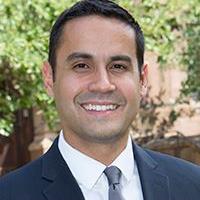Commentary on Matthew 26:17-30
About a year or two ago, I remember reading about a new food product that promised to revolutionize how we feed ourselves.
It was a drink that contained every nutritional need the human body needed to live. A few drinks a day fueled the human body in scientifically precise ways. The drink promised to end the annoyances of cooking and cleaning dishes as well as the complicated decisions we have to make at every meal. Should I eat more vegetables or more friend chicken? Should I skip desert or indulge? All those decisions would be gone.
In most scenarios, I can’t imagine how such a product would do well in the marketplace. Perhaps in an emergency situation such nutrition will sustain survivors of natural disasters. Perhaps such a nutritionally-dense drink might sustain areas struck by famine until succor could arrive. But I don’t see how such a product would replace the food and drink we consume. After all, we don’t just eat to fuel our bodies. We eat to live and thrive not just to survive. We eat because the breaking of bread and the pouring of wine turns a mere table into a center of belonging.
This week we read Matthew’s account of Jesus’ last supper, the precious meal he shares with his closest followers in the shadow of the cross. At this table, he grants the gift of his life to them and to us. But at this table of belonging and wholeness, betrayal and death also lurk.
The meal that is celebrated is a Passover meal. The Passover celebrated the deliverance of Israel from slavery into freedom, from the bondage of Egyptian power to the liberation of God’s holy embrace. At a moment of deep threat, God spared the lives of those who adorned their doorways with the blood of a sacrificed lamb. As death reigned in Egypt, the life promised to God’s people was fulfilled.
But death always seem to try to find a way. One of you, Jesus says, will be my betrayer. The Gospel writers struggle to understand why and how Judas did such a thing. Moreover, why would Jesus even welcome Judas into the company of disciples in the first place?
In Matthew and Mark, his identity as Jesus’ betrayer is quickly appended to the first reference to his name. In fact, the Gospels always place him last on the list of the twelve, an opprobrium always attached to this betrayer. Luke specifies that Judas’s betrayal has a Satanic source (Luke 22:3). In John, he is a devil in 6:70 and a thief in 12:6.
And yet I’m always struck that here Judas is not excused from the table even as his condemnation rings over the meal. He shares in the bread and the wine that represent Jesus’ body and blood, the life that would deliver us from sin and death.
Moreover, notice v. 31. There Jesus turns to all his followers and notes that they will “all become deserters because of me this night.” Peter denies this, but we know too well his story to believe his pleas. In the wake of this supper, Jesus’ faithfulness even unto death stands in striking contrast with the faithlessness of Judas certainly but also all the disciples whom Jesus handpicked to walk this road. This may be a helpful reminder to us whenever we gather to remember and reenact this meal with our sisters and brothers in Christ. Our righteousness leans entirely on Jesus’ gift of body and blood, and this is a grace that our faithlessness, our desertion of Jesus cannot blot out.
In the end, it may be misleading to call this the Last Supper. Certainly, it is the last time that Jesus breaks bread and drinks wine with his disciples before he faces the harrowing cross. But Jesus makes a promise, a promise he will keep.
“I tell you, I will never again drink of this fruit of the vine until the day when I drink it new with you in my Father’s kingdom.” This is not the last meal of a condemned man. This is but the first of many meals we will share with Jesus in a kingdom that will know no end. This is but the first of many meals without end where our bodies will be nourished and made whole, where relationships with God and one another are mended and exude the resurrected life. This is but the first of many meals where we will draw closer to God and to one another.
This is but one meal, but what a meal it is. Such a beautiful meal can only be accompanied with singing a song whose notes reverberate across the years and come into our ears every time we share this feast with our sisters and brothers in Christ.

April 2, 2015